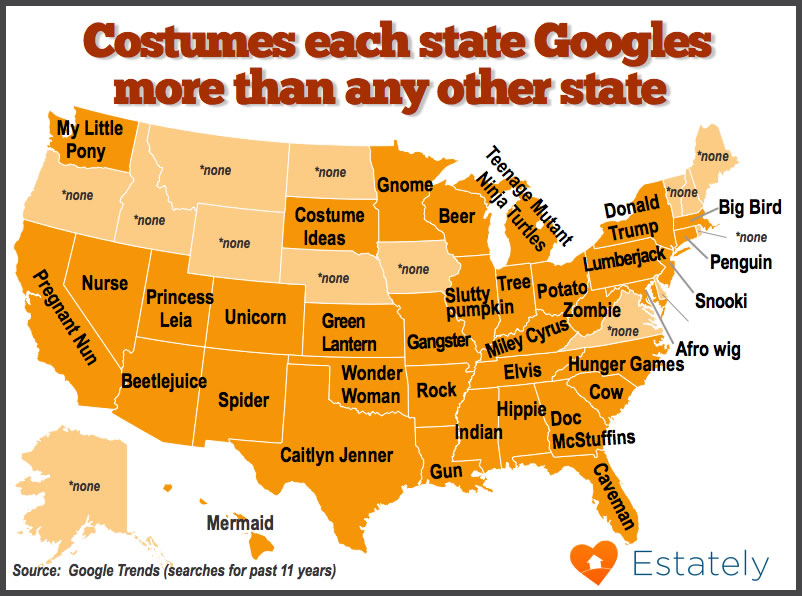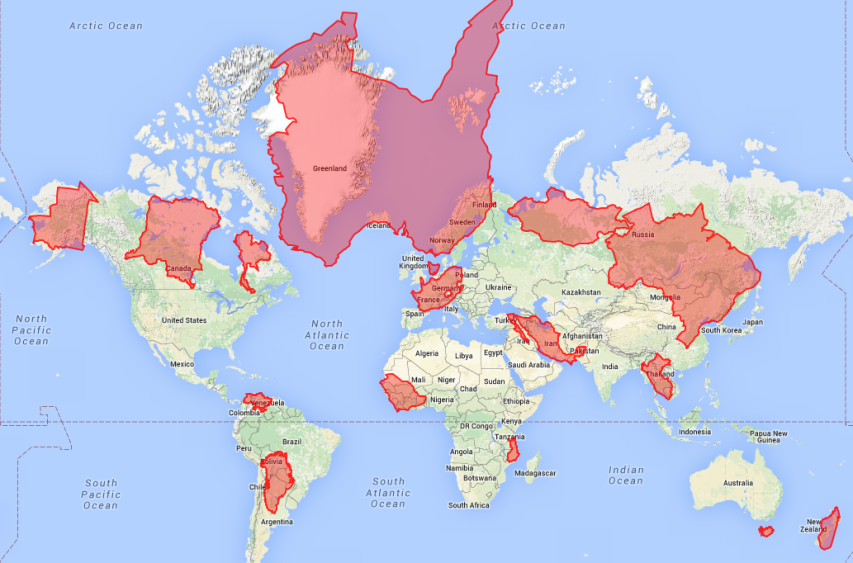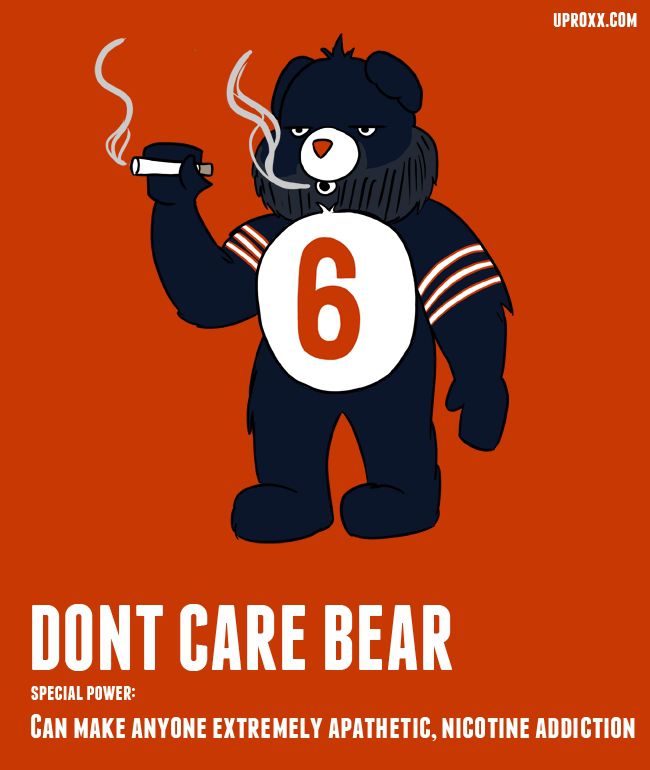Long-time readers know that I am not a gender-difference denialist; I fully accept that there are many ways in which men and women tend to be totally different, and believe it’s foolish and counterproductive to pretend otherwise. But there are other differences between the sexes which have little (if anything) to do with biology and everything to do with societal expectations. Take car repairs, for example; though many women don’t care for getting dirty, there is no earthly reason for a woman not to learn basic techniques that could get her out of a jam or save her money (especially if there’s no man handy to do them). My father would not let me drive alone until I showed him I could change a tire, and though I absolutely hate doing it and generally prefer the “stand on the side of the highway and look frustrated until a man stops and changes it for me” method (which for me never takes more than five minutes to work, at least in the daytime on a busy highway), I think it’s still a good thing that I know how to do it in a pinch…even if I do (as per Daddy’s lesson) stop as soon as I can thereafter and ask the first convenient man to make sure the lugs are tight enough. But see, that’s not really helplessness; that’s just recognizing that I simply don’t have the upper-body strength necessary to tighten those babies as tight as they probably should be. And for all his bad qualities, I do have to give Jack credit for one thing: he insisted I learn how to perform every simple car repair he could teach me, from changing spark plugs to replacing a brake master cylinder. Since Grace’s dad didn’t believe in letting her be ignorant of cars, either, I haven’t had to do any of those repairs myself in over twenty years; however, it’s still nice to know what is involved in them.
But even if a woman is as lucky as I was, and has boyfriends and family members who don’t intentionally keep her as helpless as possible, she still has to endure endless societal pressure (not just from men but from women and institutions) telling her not to take risks, not to do anything that might scare her and get her in trouble, not to explore her existence without the help of a man (or worse, of Big Brother). And though early feminists seemed to be making some progress against that, their successors have embraced it and are its most vociferous proponents. “Feminists” demand that young women be protected not only from physical harm, but even from ideas or pictures that might upset their delicate sensibilities, rattle their chains or force them to question their preconceptions for five minutes. And they march arm-in-arm with religious conservatives and police-state functionaries to restrict women’s sexual choices and send armed thugs to hunt, entrap, rape, brutalize and cage them in order to “send a message” that utilizing one’s sexuality to win economic independence is too dangerous an activity for women. Their propaganda reveals their incredibly low opinion of women’s competence; sex workers are said to be unable to place their own ads online, and touring is reframed as a criminal “circuit” in which helpless, ovine women are passively trucked around by evil “pimps”. The idea that the female brain might actually be capable of booking hotels and writing ad copy is completely alien to the narrative.
Maggie McNeill, “Boy Juice”, The Honest Courtesan, 2015-01-08.
March 11, 2016
QotD: Learned helplessness
March 4, 2016
QotD: Arguments, by the book
When everything works the way it’s supposed to in philosophy textbooks, arguments are supposed to go one of a couple of ways:
1. Questions of empirical fact, like “Is the Earth getting warmer?” or “Did aliens build the pyramids?”. You debate these by presenting factual evidence, like “An average of global weather station measurements show 2014 is the hottest year on record” or “One of the bricks at Giza says ‘Made In Tau Ceti V’ on the bottom.” Then people try to refute these facts or present facts of their own.
2. Questions of morality, like “Is it wrong to abort children?” or “Should you refrain from downloading music you have not paid for?” You can only debate these well if you’ve already agreed upon a moral framework, like a particular version of natural law or consequentialism. But you can sort of debate them by comparing to examples of agreed-upon moral questions and trying to maintain consistency. For example, “You wouldn’t kill a one day old baby, so how is a nine month old fetus different?” or “You wouldn’t download a car.”
If you are very lucky, your philosophy textbook will also admit the existence of:
3. Questions of policy, like “We should raise the minimum wage” or “We should bomb Foreignistan”. These are combinations of competing factual claims and competing values. For example, the minimum wage might hinge on factual claims like “Raising the minimum wage would increase unemployment” or “It is very difficult to live on the minimum wage nowadays, and many poor families cannot afford food.” But it might also hinge on value claims like “Corporations owe it to their workers to pay a living wage,” or “It is more important that the poorest be protected than that the economy be strong.” Bombing Foreignistan might depend on factual claims like “The Foreignistanis are harboring terrorists”, and on value claims like “The safety of our people is worth the risk of collateral damage.” If you can resolve all of these factual and value claims, you should be able to agree on questions of policy.
Scott Alexander, “Ethnic Tension And Meaningless Arguments”, Slate Star Codex, 2014-11-04.
January 21, 2016
QotD: Obesity
What about obesity? We put a lot of social effort into fighting obesity: labeling foods, banning soda machines from school, banning large sodas from New York, programs in schools to promote healthy eating, doctors chewing people out when they gain weight, the profusion of gyms and Weight Watchers programs, and let’s not forget a level of stigma against obese people so strong that I am constantly having to deal with their weight-related suicide attempts. As a result, everyone … keeps gaining weight at exactly the same rate they have been for the past couple decades. Wouldn’t it be nice if increasing obesity was driven at least in part by changes in the intestinal microbiota that we could reverse through careful antibiotic use? Or by trans-fats?
What about poor school performance? From the social angle, we try No Child Left Behind, Common Core Curriculum, stronger teachers’ unions, weaker teachers’ unions, more pay for teachers, less pay for teachers, more prayer in school, banning prayer in school, condemning racism, condemning racism even more, et cetera. But the poorest fifth or so of kids show spectacular cognitive gains from multivitamin supplementation, and doctors continue to tell everyone schools should start later so children can get enough sleep and continue to be totally ignored despite strong evidence in favor.
Scott Alexander, “Society Is Fixed, Biology Is Mutable”, Slate Star Codex, 2014-09-10.
December 17, 2015
The rise of the “transageist community”
Carl Trueman comments on what he calls the transageist community:
The case of Stefonknee Wolscht, the Canadian man who has decided that he is not simply a woman trapped in a man’s body but actually a six year old girl trapped in the same, has attracted some web attention. At first, I thought the story was a hoax but, no, it would appear that the lunatics have taken over the asylum and it is indeed true. Even if a sick joke, however, it would still offer insights into the inner logic of the politics of identity as currently played by the Left. Thus, for example, the U.K.’s Pink News reports that parts of the trans community are upset. Not, of course, at the harm done to Wolscht’s wife and children, those symbols of bourgeois oppression who are thus just so much collateral damage in the Glorious Revolution of the Self(ish). No. They are upset because his claim to be a different age “discredits their cause.”
A moment’s reflection would indicate that this condition, whereby a person is really a small child incarcerated within a much older adult body, is increasingly prevalent in today’s society. Recent events on the campuses of some of America’s top (sic) universities (sic) clearly show that the transageist community is rapidly growing in size, influence and belligerence. Still, as with all vanguard movements, some opposition is to be expected. The concerned reaction of sections of the transgender community is therefore understandable.
[…]
No doubt opponents will say that such a view will create chaos. Law courts must recognize an age of consent and an age of criminal responsibility; Schools need an objective standard of age to structure their curricula; And it is in everyone’s best interest that one-year-olds are not allowed to drive on the highways or drink Scotch or play in their cribs with loaded AK-47s. Well, yes, of course — but, please, do not shoot the messenger. I have not created the politics of repudiation which drives so much of the Left today. I am merely pointing out that its logic is inexorable. Those who accept its premises and yet seek to curb its power according to their own tastes are merely so many desperate postmodern Canutes, shouting impotently at the relentless waves of ecstatic nihilism that are even now crashing against the shore.
H/T to David Warren for the link.
December 4, 2015
QotD: “Dance like nobody’s watching”
I always laugh when I hear the phrase, “Dance like nobody’s watching.” It’s 2015. Everybody’s watching.
Jim Treacher, “Mac & Cheese Dude Is Sorry For Being An [Incredibly Unpleasant Person]”, The Daily Caller, 2015-10-13.
November 24, 2015
How’s your food innovation level for American Thanksgiving?
Megan McArdle says you can safely avoid novel and baroque food variations for the most stereotypical American meal of all time:
Every year you’re supposed to come up with something amazing and new to do with the most scripted meal in the American culinary canon. Turkey crusted with Marash pepper and stuffed with truffled cornichons. Deconstructed mashed potatoes. Green bean casserole that substitutes kale for the green beans and a smug expression for the cream-of-mushroom soup. Pumpkin-chocolate trifle with a chipotle-molasses drizzle.
I’m sorry, I can’t. I just can’t.
You know what we’re having for Thanksgiving at our house this year? With minor variations, we’re having the same thing we’ve had every year since my birth in 1973. There will be a turkey, roasted whole, because my oven cannot accommodate a spatchcocked 16-pound bird splayed over a sheet pan full of stuffing. It will be brined in a cooler, stuffed full of stuffing despite all the dire culinary injunctions against it, and cooked in the same undoubtedly subpar way we have always done it. My sister will make her homemade cloverleaf rolls, and stuffing with sausage, ginger and apple. There will be cranberry sauce, little creamed onions, mashed potatoes, and butternut squash, with bok choy for those who want greens. For dessert, there will be pie: apple, pumpkin, and perhaps, if we are feeling especially daring, cranberry-raisin.
Novelty is overrated at holidays. If you want to try planked salmon and braised leeks for the first time this year, then bon appetit. But the idea that we must have novelty, that a good cook is constantly seeking out new and better things, is a curse. The best parts of our lives do not require constant innovation; they are the best because they are the familiar things we love just as they are. When I hug my Dad, I don’t think, “Yeah, this is pretty OK, but how much better would it be if he were wearing a fez and speaking Bantu?”
The Mercator Puzzle
How badly distorted is your mental map of the world thanks to the use of the Mercator projection? You can test yourself right here in your web browser with The Mercator Puzzle. Click on the image below, then drag each distorted country outline to its correct location on the underlying map:
H/T to Laura Hudson for the link.
November 22, 2015
Draw Play Dave re-imagines NFL players as Care Bears
No, I can’t explain it, either. Here’s his justification:
Okay, okay, I admit it, I just wanted to make Jay Cutler as the Don’t Care Bear, and built an entire article around that pun.
November 15, 2015
Do Australians sound drunk to you?
Lester Haines on how and when the distinctive “Strine” accent originated:
Australians’ distinctive accent – known affectionately as “Strine” – was formed in the country’s early history by drunken settlers’ “alcoholic slur”.
This shock claim, we hasten to add, comes from Down Under publication The Age, which explains:
The Australian alphabet cocktail was spiked by alcohol. Our forefathers regularly got drunk together and through their frequent interactions unknowingly added an alcoholic slur to our national speech patterns.
For the past two centuries, from generation to generation, drunken Aussie-speak continues to be taught by sober parents to their children.
The paper reckons that not only do Aussies speak at “just two thirds capacity – with one third of our articulator muscles always sedentary as if lying on the couch”, but they also ditch entire letters and play slow and loose with vowels.
It elaborates:
Missing consonants can include missing “t”s (Impordant), “l”s (Austraya) and “s”s (yesh), while many of our vowels are lazily transformed into other vowels, especially “a”s to “e”s (stending) and “i”s (New South Wyles) and “i”s to “oi”s (noight).
The upshot of this total disregard for clear English is that our Antipodean cousins are poor communicators and lack rhetorical skills, something which could cost the Australian economy “billions of dollars”, as The Age audaciously quantifies it.
A countertop home-brewing appliance
Pulkit Chandna reviews the “Brewie”:

In the future, at-home beer brewing will be a set-it-and-forget-it cinch, and not the convoluted mess we have always known it to be. That’s the feeling one gets from looking at Brewie, the latest in a series of countertop appliances designed to automate the process of beer crafting.
The Hungarian startup behind it claims Brewie is better and more automated than the competition — including the PicoBrew Zymatic home brewery we reviewed back in June. That lofty claim has helped the company secure hundreds of pre-orders, worth more than $600,000, across two crowdfunding rounds on Indiegogo. It concluded the first leg in February with a funding tally of $223,878, only to return to the site late last month in search of yet more pre-orders. (Indiegogo, as part of its “InDemand program” allows project creators to accept contributions or orders even after their crowdfunding campaign has ended.)
The Brewie is said to distill the whole brewing process down to a series of simple steps requiring negligible human input, such that even the most hopeless of aspiring brewmasters can get started with it in no time at all. You can control the unit either through its 4.3-inch LCD touchscreen or via the companion app over Wi-Fi.
November 4, 2015
The Manic Pixie Dream Boyfriend
I guess I’ve been living in a cave for far too long, as I had never imagined the existence of the “The Manic Pixie Dream Boyfriend” in anything other than a fictional setting:
Journalist Anne Breslaw has written a funny piece for New York magazine, “Beware the Manic Pixie Dream Boyfriend.” Briefly summarized, her thesis is that an artsy and eccentric guy might be charming but is ultimately a bad choice for a boyfriend. Breslaw describes this roaming, poetry-reading person as “the self-mythologizing ‘free-spirited’ dude who’s determined to make your life magical, whether you want it or not.” It’s the guy who gets angry that you’re working late because he wants to eat burritos on the roof in the moonlight.
She goes on. The Manic Pixie Dream Boyfriend (MPDB):
“relishes breaking rules, and relishes even more his complete lack of concern that he’ll get caught. He gushes about tripping on mushrooms at Burning Man and he’s happy to supply you with some, as long as you promise to do them in nature. And he is determined to show women — no matter how much more successful, wealthy, beautiful, happy, and confident they are than him — that they aren’t living life to the fullest.”
An interesting subtext emerges from Breslaw’s piece, however: less pixie, more rage. Her barbs suggest a thinly veiled anger. Clearly contemptuous of the MPDB, Breslaw also comes across as a little jealous of him. The things that annoy her about this 21st-century beatnik – his enthusiasm for natural food, literature, great music, Burning Man, and sitting on a rooftop in New York – all sound like very cool activities. One senses that Breslaw envies the pixie’s freedom. She wants to be a part of his dream. And yet, she also clearly wants the MPDB to be more masculine; in defiance of feminist dogma, she yearns for a little less manic pixie dust and a lot more ambition (and testosterone).
Manic Pixie Dream Boyfriends have always existed, but prior to feminism and the digital revolution they were known simply as bohemians. Pixies had nothing to do with it. A pixie is diminutive and unthreatening, a figure out of fairy tales. While there have always been fey and lightweight male artists, there was once also room for raw masculinity amongst writers, poets, musicians, and filmmakers.
November 3, 2015
Learning to drive stickshift
Sam Smith remembers learning how to drive with a manual transmission:
At first, I thought my dad was just teaching me to drive a stick. At 16 and a few months, I had already earned a license, already had my first accident. (Missed a stoplight in the family Volvo while changing CDs. I cannot remember being dumber.) Two weeks of lessons later, I suspected something was up.
We drove in 20-minute spurts. Before dinner on weeknights, after lunch on Sundays, whenever. Always the same route: leave driveway, around the subdivision, back. Practice, learning how to shift, long past the point where I thought I was good enough.
The truth soon came out: My father, a patient man, wasn’t going to let me drive a manual—which meant borrowing his car—until I met what seemed like an arbitrary standard of smoothness. He wasn’t mean, just firm about it: You will do this right. And I won’t feel it when you drop into second.
The neighborhood was perfect for it. A rolling, quiet patchwork of curves. Enough uphill starts to keep you thinking. Or at least keep 16-year-old me thinking, because the first time you shift a manual gearbox, you’re a bag of elbows. This gear? That one? Then you screw it up again.
November 2, 2015
The Top 10 Moustaches of World War 1 I THE GREAT WAR Top List
Published on 28 Oct 2015
Grow your own World War 1 moustache and send a picture to us on Facebook, Twitter or Instagram using the hashtag #TGWmovember. We will collect the best for an upcoming OUT OF THE TRENCHES.
November is the month of the year to celebrate moustaches and beards in all forms and fashions. To celebrate the start of #movember we made a new top list ranking the beards of World War 1.
October 30, 2015
State-by-state Google searches for Halloween costume ideas
Joey deVilla posted this earlier in October, and I now have to wonder about Illinois, too:

- It appears that the states of Louisiana and Arkansas are going as the primary hand-held weapons of World Wars 3 and 4: “gun” and “rock”.
- I had to look up “Doc McStuffins”, which sounded a lot like a male porn star name. It’s the name of a Disney show for kids, and its titular character, a seven year-old girl who’s a “doctor” for broken toys and doll.
- As a friend of mine commented earlier today: “I learned something new about Texas.”
- And finally, Illinois: “Slutty pumpkin?” Where’d that come from?
October 24, 2015
“Is it just me? Or are Minnesotans total assholes?”
Swap out “the Twin Cities/Minnesotans” for “Toronto/Canadians” and this article could run in any of Toronto’s alternative newspapers:
The Twin Cities has never been the sort of place where hordes of starry-eyed young people move for fame and fortune. But as it climbs the ranks of every “top 10” list for quality of life, it’s becoming a harder pitch to ignore.
What those lists don’t mention is the frequent insecurity these transplants know well, whispered with confessional despair in wood-panel dive bars after months of missed connections: “Is it just me? Or are Minnesotans total assholes?”
The second-guessing is a common trait. Small-town settlers wonder if they’re just misreading urban chic for frigidity. Transplants alighting from megalopolises like Buenos Aires and Berlin chalk it up to small-city small-mindedness. Folks from the South are quick to blame the isolating cold of northern winters, but that doesn’t explain how those hailing from other Midwest cities have a hard time cracking the icy Nordic shells of native Minnesotans too.
Those born and bred here don’t always see it, but to newcomers we’re not very friendly, at least in a deep friendship way.
It took Jade Ross of Colman, South Dakota, no more than one college party to catch on that “Minnesota Nice” is a trademark best used sarcastically. At 18, when she reported for school at St. Cloud State, everybody talked up the Minnesota Nice phenomena ad nauseum, she says. “I’d never heard of that before, and I didn’t understand why you needed to talk about it,” Ross says. “In South Dakota, we were just nice, and we didn’t need to brag about it.”
At parties she’d describe home as a small farming town of 500. She got responses like, “So do you have … Internet? Do you ride a buffalo to go to school?”





